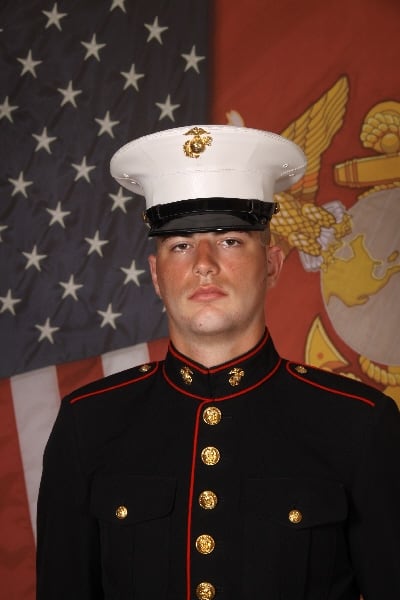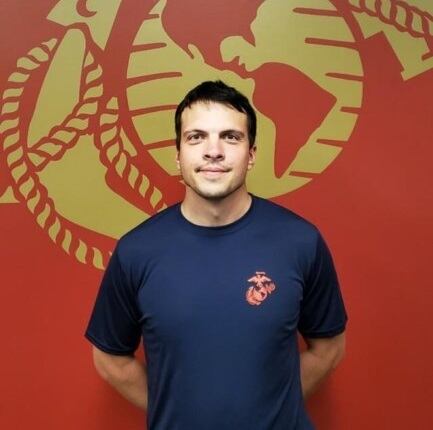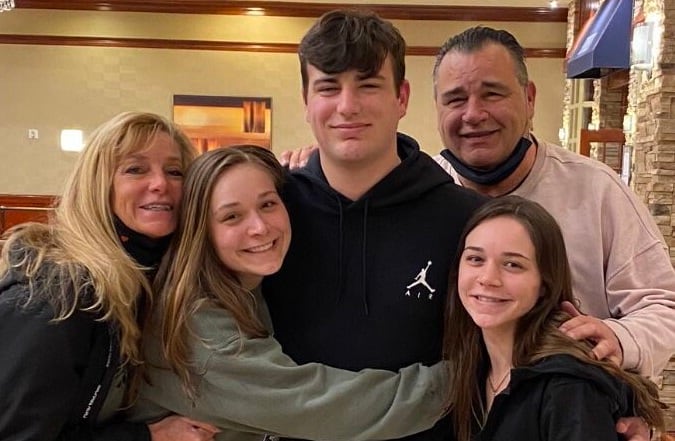It was 1 a.m. on Saturday, June 5, 2021, when Stacie Beals got the knock on her door from the Marine Corps.
“They couldn’t tell me anything,” she told Marine Corps Times in a phone interview.
Her son, Marine Pfc. Dalton Beals, 19, had been at boot camp in Parris Island, South Carolina, and had died June 4 during “the Crucible” ― the final, grueling, 54-hour pinnacle of Marine Corps boot camp.
“They didn’t know anything” she said. “They couldn’t tell me anything. I just couldn’t imagine what could have happened.”
During the Crucible, recruits complete a series of physical challenges, including miles of marching with rifles and 70-pound packs. It’s where they are “made Marines.”
Not long after his death, the Marine Corps said it had found that Pfc. Dalton Beals had “earned the title of Marine.”
Although Stacie Beals did not know it at the time, her son’s cause of death was hyperthermia ― extreme body temperature.
He had been found dead in the woods, apparently looking for sprinklers to cool down with, Stars and Stripes first reported.
It wasn’t until December 2021 that Stacie Beals received an investigative report from the Marine Corps.
The report, shared with Marine Corps Times and which includes extensive redactions, found that Pfc. Dalton Beals participated in the Crucible during both red and black flag conditions ― the highest end of a standard for how long individuals can safely train in the heat.
Red flag conditions, according to the Corps’ standards, are from 88 degrees Fahrenheit to 89.9 degrees Fahrenheit under the Wet Bulb Globe Temperature index, and limit exercise for “all personnel with less than 12 weeks training in hot weather.”
“Troops who are thoroughly acclimated may perform limited activity not to exceed six hours a day,” according to Marine emergency preparedness standards listed online.
“Physical training and strenuous exercise” should be suspended for all personnel in black flag conditions, 90 degrees Fahrenheit and above, according to the Corps’ online standards. But the depot considers the Crucible an essential activity that can go on even in black flag conditions, according to an order at the South Carolina base.
The investigation goes on to state that Pfc. Dalton Beals had separated from his group and was unaccounted for roughly for one hour.
The young Marine’s death was “likely avoidable,” according to the report.

Although instances of heat illness are rare, and reportedly on the decline among some of the services, addressing safety during training remains a relevant issue, especially for military families who have lost someone.
“From Dalton’s report, his senior drill instructor was not being monitored the way he should be monitored,” Stacie Beals said, noting she has been told that the individual and two others above that individual have been since reassigned to other roles.
The investigation outlines how Pfc. Dalton Beals’ unnamed drill instructor largely was at fault for intensifying training, and that even prior to the Crucible recruits were not comfortable bringing problems forward.
In the report, legal or administrative action was recommended against the drill instructor and two commanders.
Maj. Philip Kulczewski, a Marine spokesperson in Parris Island, South Carolina, shared in a statement, “MCRD Parris Island Leadership is in contact with the family and provides information as it becomes available.”
A request for legal services in the case of Pfc. Dalton Beals has been submitted by the Recruit Training Regiment and is under legal review by military prosecutors, Kulczewski told Marine Corps Times.
However, it would be inappropriate at this time to speculate about the details of the case with the ongoing review, he said.
Pfc. Dalton Beals is not the only Marine, or service member, to have died from extreme heat.
In 2019, Army National Guard Sgt. Sylvester Cline, 32, died from training during black flag conditions after being rushed to a hospital from a training range at Fort Chaffee, Arkansas, NBC News previously reported.
The Pentagon’s most recent Health of the Force report, released earlier in 2022, found that heat illness was more common among younger service members and those in the Marines Corps.
Another report, released in April, revealed that heat illnesses in the Army in 2020 had in fact decreased by 23% from 2019, with only 2.6 cases per 1,000 people reported.
But, nine of the 43 Army installations tracked experienced 100 or more heat risk days in 2020, mostly in the southeast of the country, and a third of active-duty soldiers were stationed at one of these locations.
Additionally, the first half of 2022 ranked the sixth hottest year on record, according to National Oceanic and Atmospheric Administration.
The most recent Parris Island, South Carolina, Crucible was scheduled to take place July 28, the Marine spokesperson said, noting the training event is conducted approximately 40 times per year.
Since summer 2021, the Beals family has raised more than $40,000 in a memorial fund and built a support network through a group called Save Our Servicemembers, which advocates for accountability in military leadership.
RELATED

Marine poolee Justin Grihorash also died in summer 2021 ― at a recruiting substation in Lansing, Michigan ― from unknown causes during training, his mother and member of the group, Nancy Grihorash, shared with Marine Corps Times.
He had collapsed during a 400-meter training run, a Navy Safety Center report said, only two days after formally enlisting in the Corps’ delayed entry program.
Nancy Grihorash says that since her son was a poolee, she hasn’t gotten many answers, including an investigation report, from the Marine Corps — and had to push to get Marine presence at this funeral.
“The last time I had any contact with the Marines at all was when I had to sign a paper to get them to pay for his funeral,” Nancy Grihorash said.
Both mothers are still looking for more answers, but emphasized the need for the Corps to have qualified leaders in place to conduct training.
“Heartbreakingly there’s a lot of stories out there,” Stacie Beals said. “Things that shouldn’t be happening. And not just the Marines, it’s the other branches.”
Editor’s note: This story was updated April 17 to reflect the number of administrative actions recommended and June 1 to reflect the date Pfc. Beals died. It was updated July 5 to reflect that execution of the Crucible is permitted under black flag conditions, according to a Parris Island, South Carolina, order.
Jonathan is a staff writer and editor of the Early Bird Brief newsletter for Military Times. Follow him on Twitter @lehrfeld_media





